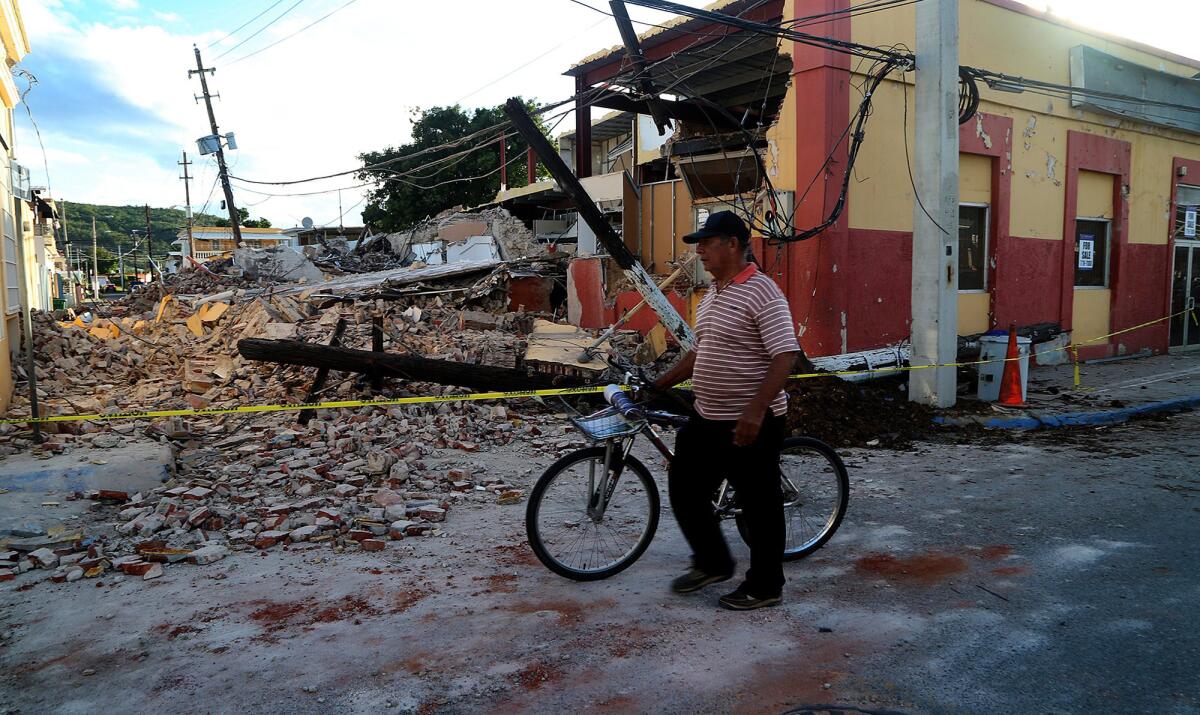Something to leave out of your disaster kit: Original documents

- Share via
Dear Liz: My wife and I are having a disagreement regarding documentation for our disaster recovery kit. She wants to put in hard copies of drivers’ licenses, credit cards, financial records, including bank and equity accounts. I think that all we need are account numbers, because the financial institutions will hold actual documentation in safer places, away from any disaster that may hit our community. I’m worried that someone may find these documents and use them nefariously, especially if we’re away from home during a catastrophic event. How much disaster planning is too much?
Answer: Security expert Avivah Litan said you have a point.
“The risks are higher than the benefits when it comes to storing hard copies of sensitive documents,” said Litan, vice president and distinguished analyst at research firm Gartner Inc.
Litan recommends storing the account numbers in a disaster recovery kit and keeping an original document that proves your identity (such as your driver’s license or passport) with you at all times in case of disaster. She suggested storing electronic copies of vital documents in a secure online storage account from a reputable provider. That way you’ll have access to what you need regardless of where you are.
Also consider allowing others to get access to the account if something happens to you. Some services allow you to appoint a trusted person who could be granted access in case you’re dead or incapacitated, or you could share your password in advance with that person.
Retirement plans by the numbers
Dear Liz: At the moment I contribute to a 403(b) retirement plan at work. I have another 403(b) with a former employer, but haven’t contributed to it since I changed jobs several years ago. Should I contribute to both rather than just one? Also, my current employer offers a deferred compensation plan, but they don’t offer a match. Should I contribute to that or stick to the 403(b)s?
Answer: Once you leave a job, you can’t contribute to its workplace retirement plan. You could leave the money where it is, or perhaps transfer it to your current employer’s plan. Rolling it over to an IRA, though, could give you access to a wider variety of investments at a lower cost. Fees for 403(b) plans tend to be higher than for their workplace cousins, 401(k)s, and the investment options are typically more limited as well.
You also may want to contribute to the deferred compensation plan. These plans allow you to make deductible contributions that can grow tax-deferred, much like a 403(b), 401(k) or other retirement plan. But unlike other retirement plans, there’s typically not a 10% federal penalty for early withdrawals (although the money will still be taxed as income). Having some money in a deferred compensation plan could give you additional flexibility in the future.
Required distributions and charity
Dear Liz: In a recent column, you mentioned that after age 70½, one can donate up to $100,000 to a charity directly from an IRA. Can one still take that as a charitable donation on income tax forms? If I have a required minimum distribution of $10,000, but make a $10,000 donation to a charity, does that take care of the required minimum distribution for that year?
Answer: The $10,000 charitable contribution would count as your required minimum distribution for the year and the money would not be included in your income, but you can’t also deduct the contribution. That would be double dipping.
As a refresher: Money doesn’t get to stay in retirement accounts forever. At some point, withdrawals must begin and those withdrawals are typically taxed as income. Congress recently changed the rules so that required minimum distributions now start at age 72 (they used to start at age 70½). But so-called qualified charitable distributions — donations made directly from a retirement account to charity — can still begin at 70½.
Before you make a qualified charitable distribution or any other withdrawal from a retirement account, consult with a tax pro to make sure you understand the rules that apply to your situation. Penalties for mistakes can be high, so it pays to get expert help.
Liz Weston, Certified Financial Planner, is a personal finance columnist for NerdWallet. Questions may be sent to her at 3940 Laurel Canyon, No. 238, Studio City, CA 91604, or by using the “Contact” form at asklizweston.com.
More to Read
Inside the business of entertainment
The Wide Shot brings you news, analysis and insights on everything from streaming wars to production — and what it all means for the future.
You may occasionally receive promotional content from the Los Angeles Times.










